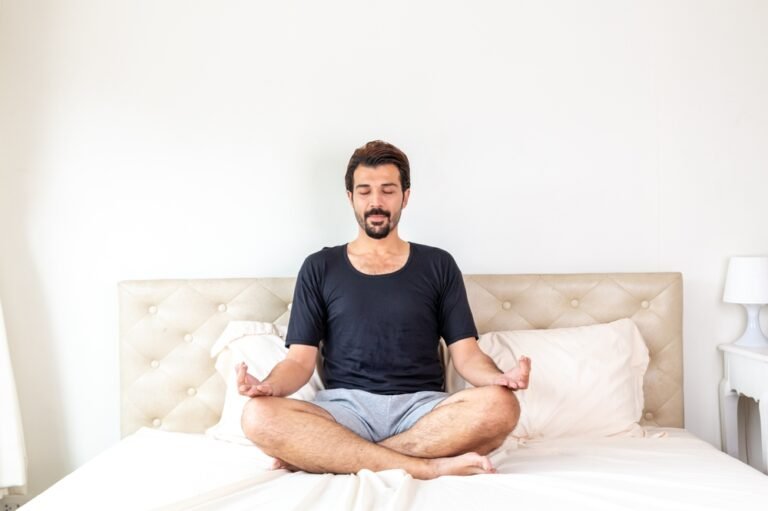How Yoga Influences Neuroplasticity and Memory Retention
Hello, wonderful yogis out there!
Your favorite yoga teachers are here to discuss something super cool that happens in our brains when we land on the mat. Of course, we all know yoga makes us feel fantastic, right? Calmer, stronger, more flexible. But what if we told you it was also reshaping your brain and optimizing memory? Yep! We’re talking about “How Yoga Impacts Neuroplasticity and Memory Retention!” We can’t wait to blow your mind (in a good way!).
Neuroplasticity: Your Brain’s Secret Superpower
To start, First we need to get through the scientific and hard to understand word, “neuroplasticity.” It’s a fancy way to refer to your brain’s incredible ability to “reorganize,” create new neural pathways, and even recover from old connections! For years, scientists believed our brains were essentially ‘hardwired’ after childhood.
A matter of surprising fact is that brains are like Play-Doh—they are literally ‘molded’ and ‘adapted’ continuously based on our experiences, thoughts, and behaviors! This is great news because it means we have a say in our brain health our entire lives! This amazing ability is essential to brain health and cognitive function.
So, how does yoga fit into all of this?
This is where things get exciting! Yoga is not a series of trendy poses; it is a full practice, incorporating physical postures (asanas), breath work (pranayama), and meditation. All of these components are key contributors to enhancing neuroplasticity in the brain, and of course, there is a lovely bonus of improving memory!
Let us see why:
1. Stress Management: Calm the Storm for a Clearer Mind
We all have heard many times that stress is a memory killer. When we are under stress, our bodies are often flushed with cortisol, which can actually cause harm to the hippocampus (the part of the brain where we learn and remember). For this reason, yoga is often recommended for its stress-reducing practices that use mindfulness and meditation.
- How does it work? Through breathworkand focused awareness, yoga engages the parasympathetic nervous system (your ‘rest and digest’ state), which lowers cortisol, decreases inflammation, and provides a more favorable environment for your brain to function optimally.
- What’s that have to do with neuroplasticity? Once our brains are not constantly on the defensive against stress, they have more energy and available resources to grow new connections and create meaningful memories—making yoga for reducing stress a straightforward way to promote a healthy brain.
2. Enhanced Mental Focus and Attention:Sharpening Your Edge

Also Read: The Science of Auras and How Yoga Affects Your Energetic Field
Do you often think to yourself, “My brain is so scattered”? Yoga shows you how to be in the here and now—by focusing on your breath, a yoga posture, and sensations from your body. Mindfulness focuses attention through practice; thus, it is like a workout for your mind.
- What it does for you: A consistent yoga practice, especially mindfulness yoga, helps improve the focus, attention, and concentration parts of the brain, especially the prefrontal cortex.
- The memory piece: When you are better at focusing, you’re better at encoding information. If you are present when learning something new, then you will be more likely to remember it later. Think of yoga for concentration as your ace-in-the-hole for memory!
3. Improved Brain Blood Flow: Fueling Your Gray Matter
Movement is medicine, even for your brain! Many yoga postures, especially inversions (like downward-facing dog or headstands if done safely) and dynamic flows, increase oxygenated blood flow throughout the body and even into the brain.
- What it does for you: Improved blood flow means more nutrients and more oxygen are getting into your brain cells to help keep them healthy and help them do their job.
- Neuroplasticity Connection: A better-nourished brain has greater capacity for neurogenesis (the generation of new brain cells) and synaptogenesis (the establishment of new connections between brain neurons). This directly promotes brain-derived neurotrophic factor (BDNF), sometimes called “Miracle-Gro for the brain.” So, yes, yoga for brain health is literally feeding your brain!
4. The Breath-Pranayama Connection: Breathing for a Brain Boost

Also Read: Sattvic Foods for Mental Clarity: A Practical Guide
We breathe automatically, but intentional, controlled breath practices (pranayama) in yoga have remarkable effects on our own brain health.
- How? Breath practices, such as alternate nostril breathing (Nadi Shodhana) or Kapalabhati (skull shining breath), can balance the left and the right hemispheres and increase oxygen supply while calming the nervous system.
- The memory connection: Balanced oxygen level and a well-balanced nervous system create the optimal environment for optimal cognitive function and improved memory abilities. You can think of yoga breath practices as direct communication to your brain.
5. Meditation: The Ultimate Brain Remodeler
One of the major and most important components of yoga is meditating, and this might be the most powerful activity among all to help facilitate neuroplasticity and brain function.
- How? When you do meditation on a regular basis, it increases the density of gray matter in regions of the brain associated with learning, memory, emotional regulation, and self-awareness. On the other hand, It can also reduce the size of the amygdala, which is involved in the stress and fear responses.
- The Long-Term Effect: This change in the architecture of the brain is a more resilient, calmer, and capable mind. When you meditate to remember, it literally changes the structure of your brain!
So, what does this all mean for you?
It means that every time you unroll your mat, you aren’t just stretching your hamstrings; you are instructed in your brain’s future. You are building a more resilient, sharper, and adaptable mind.
Whether you want to find natural options to increase memory or are looking for cognitive improvement for your overall mental health, yoga gives you options that are accessible and powerful to help solve the body and mind process. Insights from Maa Shakti Yog Bali highlight that even short, consistent yoga sessions can significantly enhance neuroplasticity and memory retention over time.
Are you ready to give your brain a beautiful boost? Yoga can be introduced as an everyday practice (15-20 min per day) and can be integrated into your life. Just paying attention to your breath, body alignment, and, more importantly, being kind to yourself.
If you’re curious about taking your yoga practice to the next level, a 200-hour yoga teacher training course in Bali could be your next step to enhance focus, memory, and mindfulness.
Until next time, breathe deeply and continue to nurture that wonderful brain of yours!
With warmth and thanks,
Your Yoga Instructors







